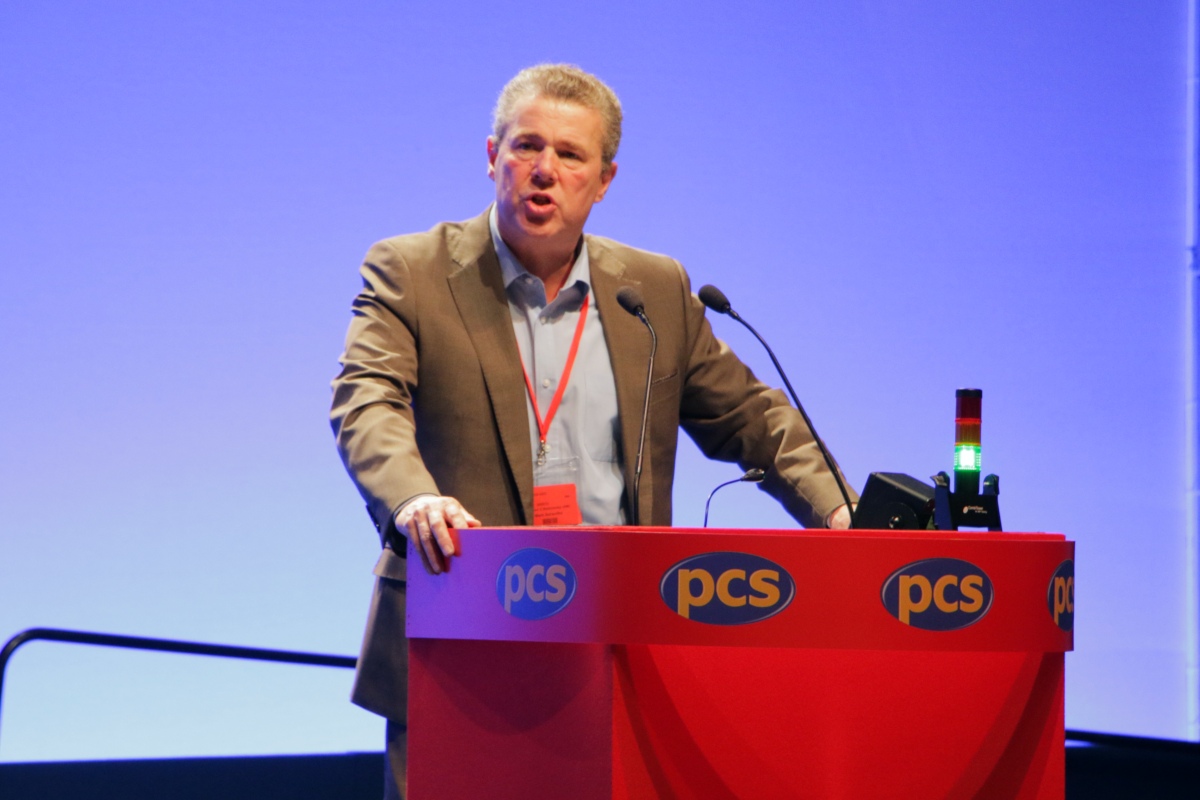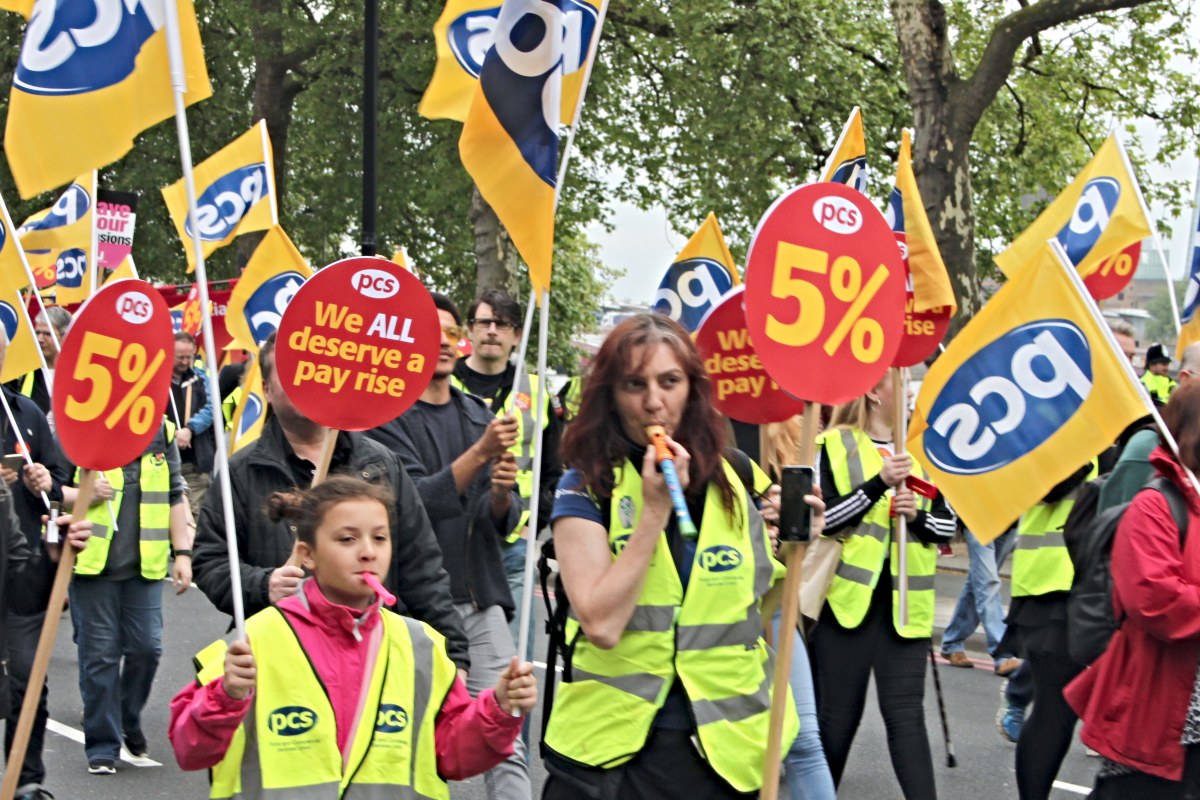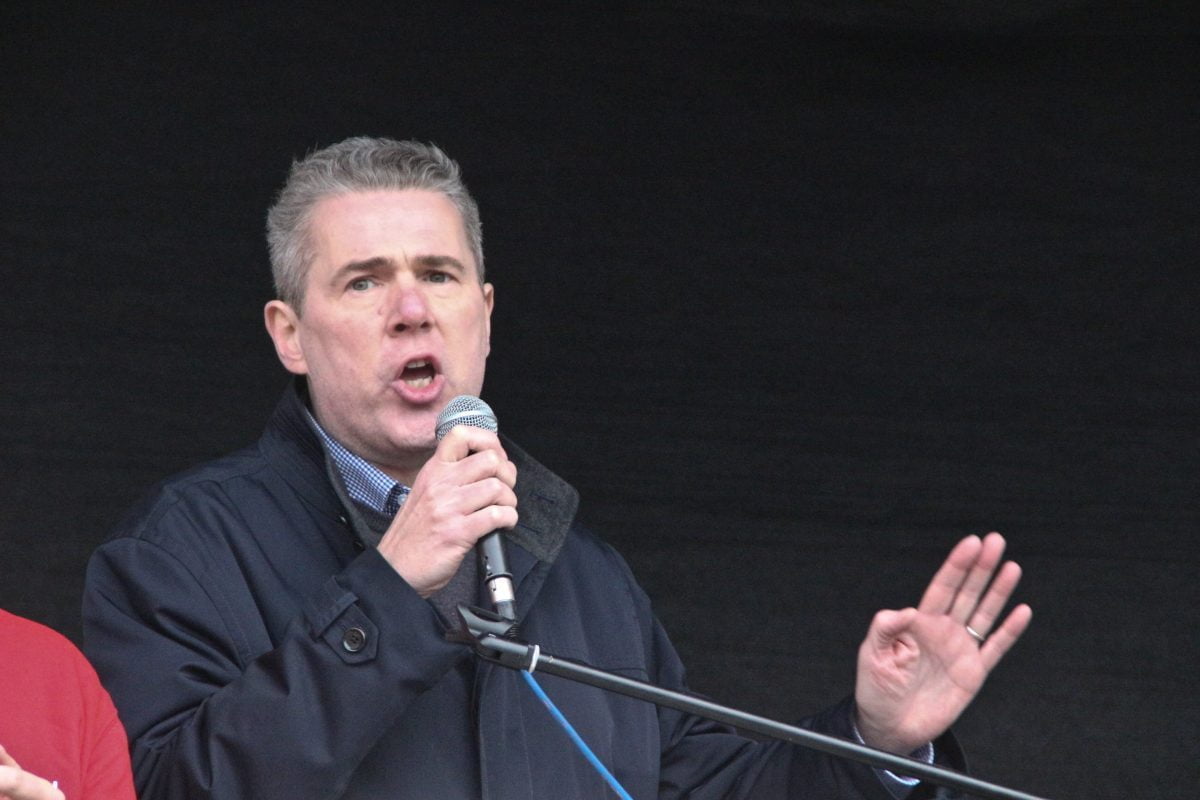We recently spoke to Mark Serwotka, general secretary of PCS, about his re-election, Labour’s defeat last December, and the fight ahead against the Tories and austerity.
Socialist Appeal: Now the Tories have a big majority, what sort of attacks do you expect to face from Boris Johnson’s government? And what challenges will this present to the PCS?
Mark Serwotka: As a socialist, the result was a devastating blow. We as a union campaigned hard for Labour, because we felt they put forward a radical manifesto that would benefit our members and working-class people. Like everyone else, we were bitterly disappointed when we saw the exit poll.
We recognised immediately the consequences of the Tory majority: that Johnson, working with Donald Trump, would attack trade unionists, working-class people generally, and specifically our members in the civil service.
As devastating as that defeat is, we don’t have time now to just reflect on what went wrong and not do anything about it. Of course we need to discuss the lessons of the election. But for the trade unions, our job now must be to mobilise resistance to what is coming.
I’m concerned that there’s already pessimism amongst some in the trade union movement. They see that Johnson is already coming for the transport unions, with changes to the anti-union laws. They say we have to pick our battles carefully. However, I personally think that what we have to do now is take up the mantle for leading the opposition against Johnson’s plans.
We know in the civil service what these attacks will look like. We are going to face pay restraint. They definitely won’t do anything about the huge levels of poverty pay in the civil service, or the massive gender pay gap. Or bring us back to national pay bargaining, which is what Jeremy Corbyn was offering.
We also know that the government intends to cut our members’ redundancy terms by 30 per cent. This is something they’ve been trying to do now for a number of years.
On pensions, there’s a huge job to be done now to renegotiate all public sector pension schemes, given the legal victories won by the Fire Brigades Union. The battle here is going to be ‘who pays’? We’ve got to make sure that it is the government who is paying. In our case, members are overpaying by 2 per cent every month into their pension schemes. We need that money back urgently.
In PCS we are preparing the ground now to launch a big national campaign around those issues. To build towards a campaign that can deliver an industrial action ballot. We believe that unions across the country now need to work together to not allow the Tories to think they can get away with this.
This must mean that the unions stand up and resist the restrictions on the right to strike that the transport unions are now threatened with. I have no doubt that this attack is something the Tories will want to spread more widely.
There are big challenges coming. The best way to see them off is to mobilise our movement and to resist.
 SA: Excellent stuff! Congratulations on your re-election to the position of General Secretary. Do you have any comments about that campaign?
SA: Excellent stuff! Congratulations on your re-election to the position of General Secretary. Do you have any comments about that campaign?
MS: Firstly I would like to say thank you to your readers. I know you came out strongly in support of my campaign, and I am very grateful for that.
It was a tough campaign. I faced two challenges from the left. One of them was a Socialist Party candidate that ran a pretty disgraceful campaign, trying to appeal to the more conservative elements in our union.
Specifically, I was attacked for calling for a vote for Corbyn and for Labour. In those circumstances, to get over 50 per cent in a three horse race was a ringing endorsement of the campaign that I and the union had been running.
Politically, it was the right thing to get behind Corbyn, and not sit on the fence. But industrially, now with the defeat, it is not the time to be conservative. We must go on the front foot. My campaign was based around revitalising the grassroots of the union. To get more people involved, building the union so as to take the fight to the employer.
The victory that I had really shows that our members accept that the union should intervene politically. But even more importantly, it should be prepared to fight battles to defend their interests. There’s no getting around it, you win those battles if you have a vibrant, workplace based union, where there’s lots of people active. I take a lot of succor from the result, as it shows that people are ready for what is coming.
What I now hope comes of that is that the union grows, and that we get far more people participating. But also that those who want to work with me in the left, want to build a non-sectarian left that is about building the union. We need to tell those on the left that have a very sectarian approach to this, that we’re going to leave you behind. We’re trying to build a fighting union, based on inclusiveness and participation. Hopefully that’s what the vote for me reflected.
 SA: Drawing from that, an important part of your campaign was that the PCS union should be political, and that it was in the interest of all workers to fight for a Corbyn victory. Now that Labour have been defeated, which way do you think is the way forward for Labour Party members? And for your union in particular?
SA: Drawing from that, an important part of your campaign was that the PCS union should be political, and that it was in the interest of all workers to fight for a Corbyn victory. Now that Labour have been defeated, which way do you think is the way forward for Labour Party members? And for your union in particular?
MS: The worst thing that could happen is that we turn the defeat in the election into a double defeat. In that we would move rightwards, believing that it was the radical proposals in the manifesto that were defeated.
I think it is critical that we identify the main cause of the defeat. We must certainly conclude that it was not because Labour wanted to renationalise parts of the economy; scrap the anti-union laws; give public sector workers pay rises; deal with climate change, etc. These radical policies were not rejected by the electorate.
For me, the election was really decided by the fact that Labour got it wrong on Brexit. In my opinion, we all – in the collective leadership of the movement – got that wrong. Initially we had the position of respecting the result of the referendum, but wanting a deal that protected jobs. But three years later, we moved to going along with a very rapid move to a second referendum, and became seen as very much in favour of Remain.
I voted Remain in the referendum. But where I think where we lost people was that three years later we were rehearsing the original arguments about whether to stay or leave. In reality, the key issue was whether working class people had any faith in people who were not prepared to abide by the referendum result.
When I see people who were the biggest advocates of Remain – the Blairites – argue that it was Corbyn’s radicalism that lost the election, we have to see that for what it is. It was Brexit that was certainly the key component of the defeat, although not the only one, and it was the Blairites who were the architects of that.
To abandon the Labour Party now would be madness. It has become the biggest political party in Europe. It was transformed under Corbyn’s leadership due to his radicalism. We must build on that radicalism and not give up on it. PCS should very much continue making that argument.
We supported Labour, not because Corbyn was leader – that was a factor. Ultimately we said vote Labour because Labour’s policies were in the interests of our members. That is the test that we should continue to apply. If Labour’s policies are pro working-class, anti-establishment, for fair taxation, rights for unions, etc., why would you not support that?
Walking away now would therefore be a double defeat. It would be giving up on the radicalism that I think is there to be won.
I see the Labour leadership election as important. Personally, I am backing Rebecca Long-Bailey. She is the candidate who is most openly saying that she stands with the radicalism in the manifesto. She has gone further in arguing for essentially mandatory reselection. The opposition that she faces from the right of the movement and the press, shows that she is the candidate reflecting the fact that Labour still needs to be radical.
I think that socialists should be in there and intervening in that leadership election. But I also think that we should be saying that the way for Labour to win back – not just its heartlands, but to win – is that we are supporting struggle. We are supporting those unions that are fighting now. We are building in the communities, whether that is grassroots campaigning, supporting local disputes, or fighting back against austerity.
We need to ensure that as Johnson comes for us, as inevitably he will, that the trade union movement leads the resistance, and that Labour remains a radical party. Those who advocate walking away now, or are saying that the game is up – their logic completes what would amount to a double defeat of our movement. We must resist that at all costs.






